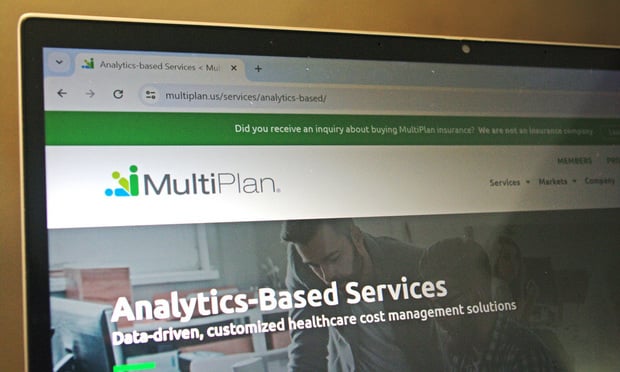SAN FRANCISCO — A federal judge Monday expressed skepticism thatPresident Donald Trump’s decision to halt certain health law insurance subsidieswould cause consumers immediate harm, as California and many otherstates claim in a lawsuit.
|U.S. District Judge Vince Chhabria said he would issue a rulingin the case Tuesday.
|Earlier this month, Trump announced that the administration would stop payments thatcompensate insurers for discounts given to low-income consumers tohelp cover their out-of-pocket expenses under policies sold on theAffordable Care Act’s insurance marketplaces. These subsidies aredifferent from the tax credits many consumers get, depending ontheir income, to pay Obamacare premiums.
|The lawsuitwas filed by 18 states and the District of Columbia, led byCalifornia Attorney General Xavier Beccera. It seeks an emergencyrestraining order compelling the Trump administration to resume theObamacare payments. Nationwide, cost-sharing payments were expectedto total $7 billion this year.
|Since assuming office in January, Trump has repeatedlythreatened to stop the subsidies, known as cost sharing reduction(CSR) payments. But he held off while Republicans in Congress wereworking to replace the ACA. Republicans have argued that thesubsidies are illegal because they have not been approved byCongress and that they amount to a bailout for insurers.
|Responding to the uncertainty, a number of states have allowedinsurers to raise their premiums. California earlier this monthordered insurers to add a surcharge to some policies next year, to offset the potentialloss in federal funding and keep the individual insurance marketstable. The 12.4 percent surcharge was added to silver plans only,the second-least expensive tier.
|“California is doing a really good job in responding to thetermination of [cost-sharing reduction] payments in a way that isavoiding harm for people and actually benefiting people,” saidJudge Chhabria.
|He said that the vast majority of states have “seen the writingon the wall” and chosen to respond by increasing premiums forsilver plans. That, in turn, will force the federal government togive higher tax credits to most consumers, so they won’t feel anyfinancial pinch.
||This story was produced by Kaiser Health News, whichpublishes California Healthline,an editorially independent service of the California Health Care Foundation.
|Under intense questioning by the judge, California DeputyAttorney General Gregory Brown acknowledged that California hasdone a lot to mitigate the harm to consumers. But he said theadministration’s actions are destabilizing the exchanges and theindividual insurance market, and causing chaos for states andconsumers just eight days before enrollment begins Nov. 1.
|Some experts and states are concerned jumpy insurers will boltfrom the market and leave some regions with minimal or no choicesfor coverage. However, a bipartisan bill in Congress would restorethe cost-sharing subsidies and aims to stabilize the insurancemarkets. But it’s not clear the bill will muster the support itneeds to pass both the Senate and House or whether Trump would signit.
|In California, 1.4 million people buy their own coverage throughthe state marketplace, and 90 percent receive federal subsidiesthat reduce what they pay.
|During the hearing, Chhabria read from a Covered Californiapress release thatpredicts how the changes will affect consumers in 2018. It notesthat even though silver plan premiums will rise as a result of thesurcharge, the federal tax credits will also increase to cover therise in premiums. That will leave 4 out of 5 consumers with monthlypremiums that stay the same or decrease.
|The judge also said ruling in favor of the restraining orderwould mean insurance companies could essentially “double collect” —benefiting from both the premium increases from the surcharge onsilver plans and the cost-sharing subsidies.
|Brown said a restraining order to resume the cost-sharingpayments would bring back the status quo. If insurance companiesdouble collect, the state would compensate by reducing rates downthe line, he said.
|“We’re not looking to give insurance companies a windfall … butthe stability is important to insurance companies,” he said.
|This story was produced by KaiserHealth News, which publishes California Healthline,an editorially independent service of the California Health CareFoundation.
Complete your profile to continue reading and get FREE access to BenefitsPRO, part of your ALM digital membership.
Your access to unlimited BenefitsPRO content isn’t changing.
Once you are an ALM digital member, you’ll receive:
- Critical BenefitsPRO information including cutting edge post-reform success strategies, access to educational webcasts and videos, resources from industry leaders, and informative Newsletters.
- Exclusive discounts on ALM, BenefitsPRO magazine and BenefitsPRO.com events
- Access to other award-winning ALM websites including ThinkAdvisor.com and Law.com
Already have an account? Sign In
© 2024 ALM Global, LLC, All Rights Reserved. Request academic re-use from www.copyright.com. All other uses, submit a request to [email protected]. For more information visit Asset & Logo Licensing.








